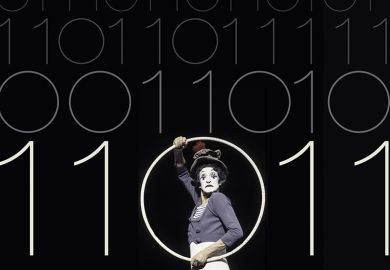This excellent volume in a new series called Key Topics in Sociolinguistics is the first textbook on this subject. Politeness is what in the language field we call a Whelk (What every linguist knows): we all know that many European languages have two words for "you": an informal one for friends (French tu , German du ) and a polite one for strangers ( vous / Sie ). Japanese grammar has a complex system of "honorific" forms that speakers must use to reflect the appropriate deference to the person they are addressing. We also know that Penny Brown and Stephen Levinson wrote a seminal study of politeness in the 1970s that argued that every language contains devices for saving face. Interesting in its way, but is this worth a textbook?
Every linguist should now know better. Politeness turns out to be a fruitful and exciting area that embraces some crucial issues in linguistics. The word polite is itself elusive, complex and, as Richard Watts rightly emphasises, contested. Most people would agree with the Oxford Dictionary of English that polite behaviour is "respectful and considerate of other people"; and they would probably approve of consideration for others. But "respect" is less straightforward: the world divides into those who think that some people automatically deserve respect (one's parents, nuns, royalty and so on), and those who believe that respect has to be earned. What's more, I may respect an outstanding athlete such as Diane Modahl, and if I met her I might say so, but would this count as being "polite"?
The difficulty is that the word is also used to imply "very cultured and refined", as in the expression "polite society" (or when people who collect humour on the web use the term "impolite" for jokes they wouldn't tell their mother). Politeness has traditionally been something that elite groups are supposed to possess. Those who belong or aspire to belong to the elite usually regard politeness as a virtue; if you do not want to join, or if you oppose elites on principle, you will associate politeness with snobbery and insincerity.
Watts maintains that behaviour becomes polite when it goes beyond the basic cooperation that makes human interaction possible. Conversely, when someone violates the implicit conventions that I bring to a conversation, I will regard their behaviour as impolite. My assumptions about this basic cooperation may not be the same as other people's and everyone's assumptions vary in different contexts, and depend on power relations in society. Politeness is, therefore, constantly in dispute, and the book argues cogently that models of linguistic politeness that ignore this central fact are inadequate.
As well as challenging previous work in the field, the book, rather surprisingly, adds much to our understanding of the Labour Party. Watts reproduces a lengthy TV interview with Tony Blair, then leader of the Opposition and proud of his "project" to reform the party. David Dimbleby tries to browbeat the future Prime Minister into admitting that Old Labour was "wrong" and that Blair is therefore "ashamed" of some of his previous policies. Dimbleby interrupts, caricatures, contradicts and attacks while Blair tries to restore harmony so that he can put across his message. The book skilfully unpicks the politeness (and impoliteness) strategies that both speakers use.
In another apparent reference to Labour politicians, the book discusses early modern attempts to formulate a philosophy of politeness, listing "Smith, Campbell, Blair and others to follow". No references are given, and one begins to suspect the author of playing a literary version of Word Bingo, the game where contestants give each other inappropriate words that they have to slip in during dreary committee meetings without being challenged. Sadly, the book is not waspishly locating two recent Labour leaders and one spin-doctor in the 18th century: the people in question are Adam Smith, George Campbell and Hugh Blair, three Scots who wrote about ethical behaviour.
This clearly written book will stretch its readers, leaving them with the sense that the field is more fertile and interesting than they may have imagined at the start. When he deals with controversial subjects, Watts spells out the issues and is not afraid to argue for a particular point of view. This will encourage students to examine the facts and form their own judgement. An unusually rich and stimulating textbook - though I am still unsure whether that counts as just being polite.
Raphael Salkie is professor of language studies, Brighton University.
Politeness
Author - Richard J. Watts
Publisher - Cambridge University Press
Pages - 304
Price - £50.00 and £18.99
ISBN - 0521 79085 9 and 79406 4
Register to continue
Why register?
- Registration is free and only takes a moment
- Once registered, you can read 3 articles a month
- Sign up for our newsletter
Subscribe
Or subscribe for unlimited access to:
- Unlimited access to news, views, insights & reviews
- Digital editions
- Digital access to THE’s university and college rankings analysis
Already registered or a current subscriber? Login



